 This session explores emerging global trends in card manufacturing from a supplier's point of view, with a focus on evolving customer preferences and material innovations. Attendees will gain insights into the growing demand for premium surface finishes, the expanding market for metal cards, and the industry’s shift toward eco-friendly materials. The presentation will highlight how these trends are shaping product development, influencing supply chains, and driving sustainability across the card ecosystem.
This session explores emerging global trends in card manufacturing from a supplier's point of view, with a focus on evolving customer preferences and material innovations. Attendees will gain insights into the growing demand for premium surface finishes, the expanding market for metal cards, and the industry’s shift toward eco-friendly materials. The presentation will highlight how these trends are shaping product development, influencing supply chains, and driving sustainability across the card ecosystem.
Tabletop exhibitors briefly present; groups rotate from exhibitor to exhibitor


Discover how the integration of standards and the Intergraf Certification Requirements ensure a multi-layered security framework that builds trust among governments, central banks, tendering authorities and industry stakeholders. As these certification schemes become essential benchmarks for secure and reliable supply chains, explore the innovative strategies and collective efforts driving the fight against counterfeiting.
Bio
Doris Schulz-Pätzold brings extensive experience in the security printing and card technology industry, with a specialization in security features, printing procedures and manufacturing and personalization processes.
Before joining Intergraf in 2017, Doris held various roles in sales, marketing and project management at Challenge Card Design (a LaserCard company), Bundesdruckerei and HID Global, focusing on highly secure documents.
As the customer relations and certification director at Intergraf, Doris is the primary point of contact for all topics related to Intergraf certification, leveraging her expertise to support the security printing community.
 TotalEnergies Corbion (TEC) produces Luminy® Polylactic Acid (PLA), a biobased, compostable and recyclable polymer, derived from sugarcane in Thailand. PLA, made from biobased feedstock, has a 85% lower carbon footprint compared to conventional polymers including its biogenic carbon. The carbon in Luminy® (PLA), known as biogenic carbon, comes from atmospheric CO2 captured by sugarcane plants. At the end of its life, when incinerated or composted, this carbon is released back into the atmosphere, maintaining a neutral carbon balance.
TotalEnergies Corbion (TEC) produces Luminy® Polylactic Acid (PLA), a biobased, compostable and recyclable polymer, derived from sugarcane in Thailand. PLA, made from biobased feedstock, has a 85% lower carbon footprint compared to conventional polymers including its biogenic carbon. The carbon in Luminy® (PLA), known as biogenic carbon, comes from atmospheric CO2 captured by sugarcane plants. At the end of its life, when incinerated or composted, this carbon is released back into the atmosphere, maintaining a neutral carbon balance.
On top of the biobased benefits of Luminy®, TotalEnergies Corbion is recycling PLA waste from industrial origin and closed loop post-consumer systems via hydrolysis producing new Luminy® (PLA) with recycled content maintaining the quality and regulatory compliance.
TotalEnergies Corbion conducted an updated Life Cycle Assessment (LCA) of both virgin and recycled PLA, highlighting the significant contribution of biogenic carbon to global warming potential. Despite the lack of consensus on modeling biogenic CO2 in LCA, this assessment being ISO14040, 14044 and 14067 compliant demonstrates the benefits of biobased and recycled biobased polymers. The LCA results confirm the progress towards a reduced climate change impact from the plastic industry. In fact, the climate change impact of Luminy® rPLA with 30% recycled content is zero and becomes negative with higher recycled content.
Using Luminy® PLA and even more recycled Luminy® PLA in durable applications like cards plays a significant role in reducing the global warming impact of material production.
 This presentation highlights the importance of continuously monitoring the market and staying adaptable. I will share examples from the past, like how Nokia, once a leader in rubber boots before shifting to smartphones, ultimately faltered because they failed to recognize the next big change. I’ll also touch on Variuscards’ journey—how, during the COVID pandemic, we pivoted to become a software company, providing solutions for COVID testing. We then embraced further change by digitalizing every process in our printing operations, from order intake to digital prototyping. Today, we’ve expanded our expertise into manufacturing postal stamps, leveraging our deep knowledge of card production. The goal is to spark curiosity and inspire the courage to try new things in an increasingly competitive market.
This presentation highlights the importance of continuously monitoring the market and staying adaptable. I will share examples from the past, like how Nokia, once a leader in rubber boots before shifting to smartphones, ultimately faltered because they failed to recognize the next big change. I’ll also touch on Variuscards’ journey—how, during the COVID pandemic, we pivoted to become a software company, providing solutions for COVID testing. We then embraced further change by digitalizing every process in our printing operations, from order intake to digital prototyping. Today, we’ve expanded our expertise into manufacturing postal stamps, leveraging our deep knowledge of card production. The goal is to spark curiosity and inspire the courage to try new things in an increasingly competitive market.
 As payment card manufacturers and suppliers, you’re not just creating cards—you’re crafting gateways to premium, personalized experiences that redefine how consumers interact with brands.
As payment card manufacturers and suppliers, you’re not just creating cards—you’re crafting gateways to premium, personalized experiences that redefine how consumers interact with brands.
Transforming Transactions emphasizes how innovative designs, customization, security and packaging elevate cards beyond mere payment tools.
Key areas to cover: Unique materials for standout aesthetics, advanced customization, cutting-edge security, distinctive packaging and premium customer experiences.
This session explores cutting-edge digital tools transforming remote machine support. Attendees will see how video-based support, machine hubs, spare part detection, digital twins, and AR/VR glasses are reshaping efficiency and service. The program concludes with hands-on lessons using AR/VR glasses, offering practical insights into the future of machine maintenance and operations.
Note: Schedule in development and is subject to minor adjustments
